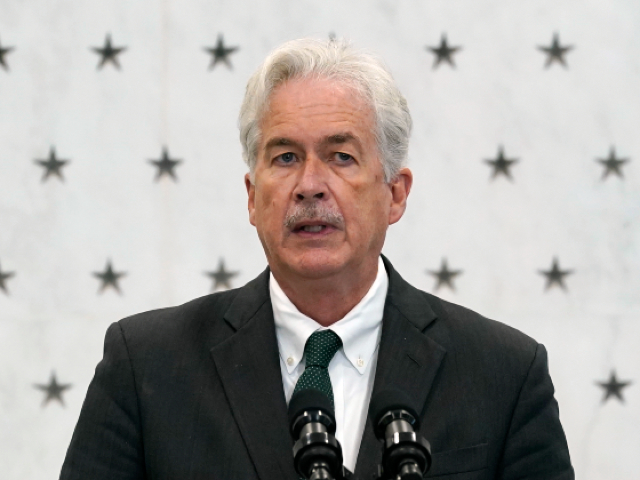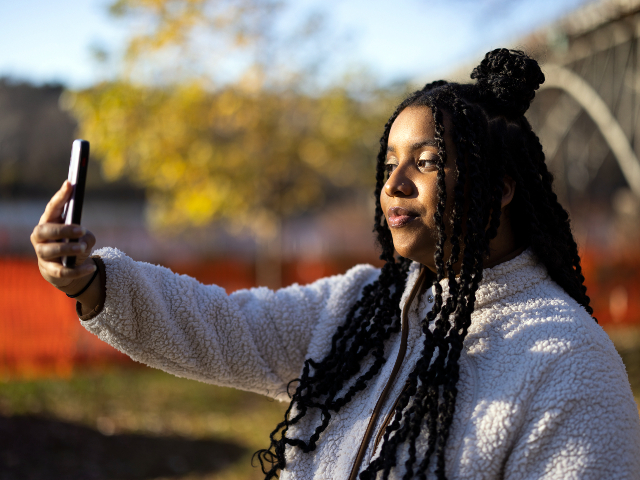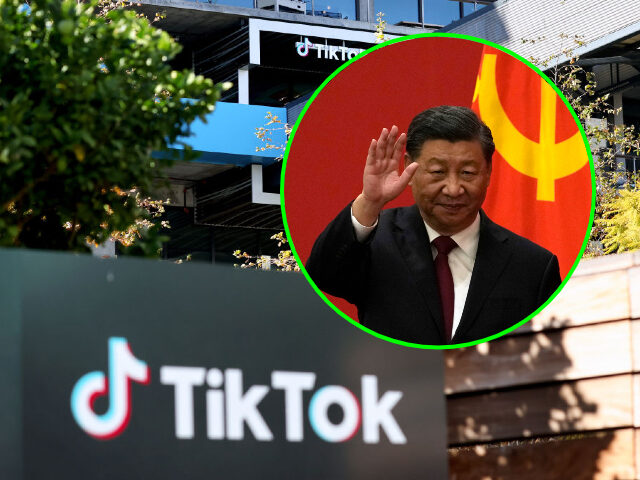There are uncomfortable similarities between Elon Musk’s “Twitter Files” revelations of how the FBI colluded with the social media platform’s previous management to influence U.S. elections and the coincidentally-timed story that a growing number of government agencies are banning Chinese-owned video blogging platform TikTok.
Both are examples of authoritarian governments using social media to push disinformation for political purposes. The difference is that China is much better at it, having the advantage of a long head start, but others around the world are catching up and in some cases copying China’s extensively practiced techniques.
If those terms sound harsh, consider that government agencies using their power to influence elections is inherently authoritarian. Western-style representative government rests on the ideal of free people casting their votes without coercion.
Government agencies pushing disinformation to sway elections – in the case of the Twitter Files, the FBI working very hard to push the entirely false idea that the Hunter Biden laptop story was Russian propaganda – crosses the line from statism that is barely restrained by elections into outright authoritarianism. So is government agencies using private-sector contractors to carry out censorship programs that would be forbidden by the Constitution if state power was not deceptively laundered through private corporations.
Authoritarianism gets much worse than centralized government agencies abusing their power to influence elections, but that overreach is a troublesome starting point for worse things to come. The important points to remember about the Twitter Files, covered extensively here, are that the FBI knew the Hunter Biden laptop story was accurate, but it carefully manipulated Twitter and various media outlets to assume the story was Russian disinformation – it even played head games with Twitter management by slipping the names of specific Russian hacker threats into the conversation. The FBI also used a considerable amount of financial leverage to keep Twitter on message.
These are the hallmarks of a classic disinformation operation, or “election interference” to use the popular language of the moment, and few of those frantically trying to spin the Twitter Files away would hesitate to recognize it as such if a government they did not like was the perpetrator. Authoritarian regimes do this sort of thing all the time, as with China’s long-running effort to obfuscate the origins of the Chinese coronavirus and brand anyone who doubts Beijing’s line as a racist or conspiracy theorist.
TikTok is an even more direct exercise of authoritarian power to influence Western politics. The Chinese Communist Party does not have to play cute little games to nudge Chinese Internet companies to spread disinformation or censor inconvenient truths. Chinese companies are legally required to fully and quietly cooperate with the People’s Liberation Army and its intelligence units at any time, without warnings or apologies to foreign customers.
CIA Director William Burns made this point in a PBS interview on Friday, in which he said it was “genuinely troubling to see what the Chinese government could do to manipulate TikTok.”

Central Intelligence Agency Director William Burns speaks at the Central Intelligence Agency headquarters in Langley, Va., Friday, July 8, 2022. (AP Photo/Susan Walsh)
“Because the parent company of TikTok is a Chinese company, the Chinese government is able to insist upon extracting the private data of a lot of TikTok users in this country, and also to shape the content of what goes on to TikTok as well, to suit the interests of the Chinese leadership. I think those are real challenges and a source of real concern,” Burns elaborated.
Burns came up short of recommending a general ban on TikTok, but he did advise parents to be careful about letting their children use it – advice that is very difficult for parents to implement during an era of smartphone saturation.
TikTok is exceptionally difficult for parents to police because it is enormously popular among young people – so popular that the Biden administration happily used it to push administration narratives on the Russian invasion of Ukraine and coronavirus vaccination. The White House staffers who managed a teleconference on Ukraine with top TikTok creators in March were themselves forbidden to install TikTok on their phones because the White House knows how dangerous TikTok is.
TikTok has long been accused of harvesting foreign user data and making it available to the Chinese intelligence apparatus. The app employed by smartphone users to access TikTok services is notoriously intrusive and pushy, gathering far more data from host devices than it needs to run.
TikTok has a habit of denying these data-gathering practices until security experts hector the company into admitting the truth. It was not until July 2022, for example, that the company admitted foreign user data was being harvested and sent back to China.
TikTok’s ever-changing privacy policy, which few of its young fans bother to read, occasionally produces some unpleasant surprises, such as the discovery in September that the app is collecting biometric data on American users.
Many people have grown somewhat resigned to data harvesting, assuming with a shrug – and an uncomfortable degree of accuracy – that companies and agencies, foreign and domestic, are constantly gathering information from their online activities. However, TikTok does not just pull information, it pushes, and some of what it pushes is dangerous. Its content influences politics, as the Biden White House understood when using TikTok for its own purposes, but it also influences personal behavior.
Last summer, TikTok was sued in California for enticing children to play an incredibly dangerous “blackout challenge” in which they choke themselves unconscious while other users watch. Several children died while participating in this game.
A group called the Center for Countering Digital Hate produced a study last week that found TikTok exposes new teenage users to harmful content within a half hour of signing up. The study accused TikTok’s algorithms of deliberately boosting some of this harmful content to young users.
“It’s like being stuck in a hall of distorted mirrors where you’re constantly being told you’re ugly, you’re not good enough, maybe you should kill yourself. It is literally pumping the most dangerous possible messages to young people,” said Center for Countering Digital Hate CEO Imran Ahmed.
FCC Commissioner Brendan Carr last week described TikTok as “China’s digital fentanyl,” a reference to the deadly drug produced by China that has been wreaking havoc on American streets. Taiwanese authorities likewise accuse Beijing of feeding “digital opium” to their youth.

High school student Mecca Patterson-Guridy, 17, takes a selfie in Philadelphia on Friday, December 9, 2022. She says she wants to learn, but for some subjects she doesn’t always feel comfortable asking her teachers. That is why she has resorted to… TikTok. (AP Photo/Ryan Collerd)
“A lot of people look at TikTok and they think it’s just a fun application for sharing dance videos or other funny videos. But that’s just the sheep’s clothing,” Carr said, pointing out that China does not allow its own people to use TikTok – they have a similar app that features “very, very different” content.
Tired of waiting for a much-touted deal between the Biden administration and TikTok’s parent company ByteDance that would supposedly address privacy concerns, 19 U.S. states have now banned or restricted the TikTok app from government devices. Louisiana and West Virginia joined the list on Monday. The titanic and unreadable $1.7 trillion omnibus spending bill currently slouching through Congress includes a ban against installing TikTok on all U.S. government devices, sponsored by Sen. Josh Hawley (R-MO).
“TikTok is a Trojan Horse for the Chinese Communist Party. It’s a major security risk to the United States, and until it is forced to sever ties with China completely, it has no place on government devices,” Hawley said when his legislation passed the Senate.
And yet, much of what TikTok has been criticized for is disturbingly similar to what the Twitter Files revealed about our government’s manipulation of social media during the past few election cycles. The temptation for big governments to use social media for surveilling and influencing their electorates is incredible, perhaps irresistible.
The latest batch of Twitter Files disclosed on Tuesday showed the social media platform was quietly helping the U.S. military run an influence campaigns, even as the company declared in public that it would never allow any “state-backed information operations.” Hopefully, none, if it involved tricking preteen girls into choking themselves unconscious on-camera.
It would be very difficult to argue that the permanent bureaucracy of the U.S. federal government has any objection in principle to governments using social media platforms to spread disinformation and manipulate electorates, as long as it gets to be the government doing the spreading and manipulating. Elon Musk’s Twitter Files offer a vision of authoritarian manipulation of social media that is chugging down the same tracks as China’s censorship locomotive, and not terribly far behind it.

COMMENTS
Please let us know if you're having issues with commenting.